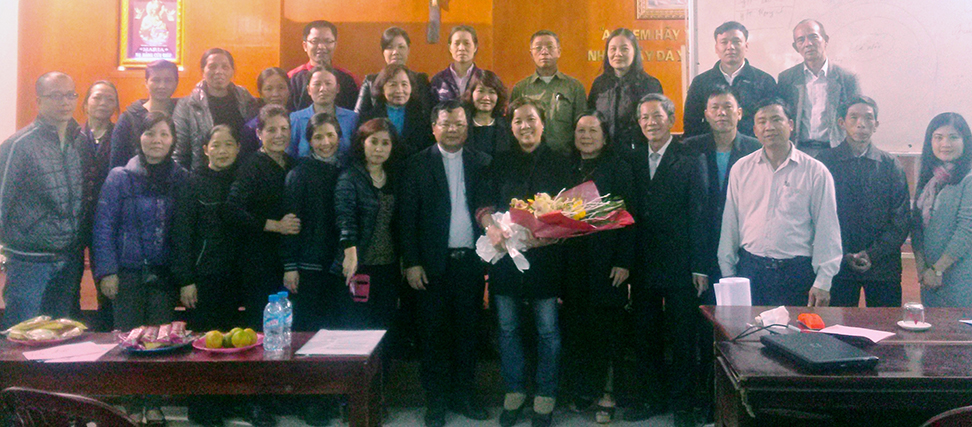In March, the Center for Studies and Applied Sciences in Gender, Family, Women and Adolescents (CSAGA) – MenCare Vietnam’s coordinator – focused its efforts on engaging local religious leaders. Throughout the month, CSAGA conducted trainings with priests, nuns and other clergy on how to integrate gender equality and domestic violence prevention into their premarital programs. These religious trainers in Vietnam have the desire, but often lack the tools to integrate education about healthy, equitable, and nonviolent relationships into their courses for couples. CSAGA’s training sessions aim to equip religious leaders in Hanoi with this knowledge, focusing particularly on men’s engagement in equality and participation in childcare. The project, entitled “Integrating the Contents of Gender Equality, Domestic Violence Prevention, and Men’s Responsibilities in Caregiving and Housework in Premarital Courses in Churches in Hanoi, Vietnam,” has reached 40 religious leaders in Thai Hai, Hanoi so far.
The program’s CSAGA facilitators report that while gender equality and domestic violence prevention are new topics for religious leaders in Thai Hai, many are already united in the belief that men and women are equal before God. Priests and elder teachers, in particular, highlight the absence of Christian scriptures stating that men and women are not equal. However, most religious leaders still subscribe to common gender prejudices and stereotypes. For instance, many believe that men should be breadwinners and primary decision-makers in the household. There is also a lack of understanding among religious leaders that domestic violence can be both physical and non-physical, which has led to a lack of support for victims and survivors. These notions are a result of a long-standing patriarchal culture in Vietnam, as well as patriarchy within the Catholic tradition.
Overall, MenCare Vietnam reports that the training sessions have been very successful in engaging religious leaders in challenging stereotypes about gender and increasing their capacity to better address domestic violence cases in their parishes. The Thai Hai Church and other Hanoi parishes have been supportive of the initiative and plan to organize additional training courses to deepen their knowledge and reach a broader audience. CSAGA aims to expand this model to impact a greater numbers of religious leaders and Catholic churches in the future.
